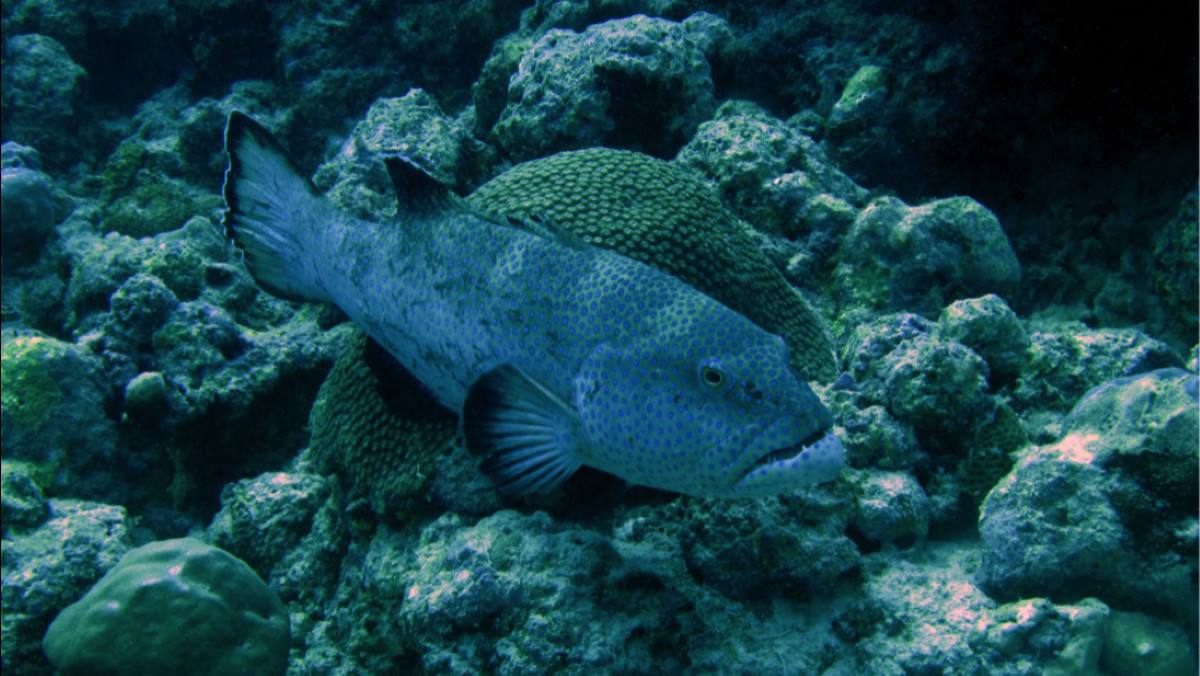New research in India has found fishing impacts the fish that live to tell the tale, not just the ones that get caught.
Male squaretail groupers (Plectropomus areolatus) are being scared away from their territories off the Lakshadweep archipelago, located north of the Maldives, by humans deliberately targeting spawning sites for fishing.
The resulting behavioural changes have caused males to stop aggressively defending their territories and are instead fleeing, losing valuable time to court females.
This impacts their ability to reproduce and could result in fewer offspring, as well as longer-term consequences for the population’s survival.
“Our findings suggest that the stresses caused by fishing are making the fish more nervous and on guard,” says Rucha Karkarey of Lancaster University in the UK, lead author of the new study in Biology Letters.
“In turn this is reducing the opportunities for single male groupers to find a mate and reproduce because they are being more vigilant and compromising territorial defence by fleeing.
“It also means that paired males, that are fitter and more successful at reproducing, are the ones being fished, which can have a consequence for the fitness of this population in the future.”
Squaretail groupers are found across the Indo-Pacific region. They gather at very specific spawning aggregation sites for only a few days during the new and full moons between December and March.
Males arrive a few days prior and establish mating territories to attract females that arrive a day before the new or full moon.
Fisheries, particularly spearfishing and hook and line fishing, have begun targeting and exploiting some of these gatherings to guarantee catches while fish are distracted.
At the studied fished site at Lakshadweep archipelago squaretail grouper aggregation densities have plummeted by 70% in a decade.
“We discovered that we couldn’t film or study the fish as easily at the aggregation sites as we could in the past,” says Karkarey.
“We couldn’t get as close to them, they would swim away as though we were predators. It was obvious to us that there was a difference in their behaviour and we realised that the major thing that had changed in the decade since our previous study was the start of fishing at the site.”
The researchers compared male squaretail grouper behaviour at fished and unfished spawning sites by swimming towards them to simulate a threat.
Males who had already partnered with females at the fished site took greater risks during courtship, fleeing later and returning earlier.
However, single males at fished sites were twice as likely to flee and took 2.5 times longer to return to territories than those at unfished sites.
They were also less likely to return to their territories whatsoever and spent significantly less time and energy aggressively defending territories from rivals, compared to unpaired males at unfished sites.
The researchers believe this could be due to several factors, such as females becoming less selective in high-risk situations or bolder fish being removed from the population by getting caught.
“Decreased aggression can hold significant evolutionary implications in mating aggregations, specifically through a relaxation in sexual selection, which could have implications for mate choice, population fitness and long-term resilience,” says co-author Sally Keith of Lancaster University.




















Discussion about this post